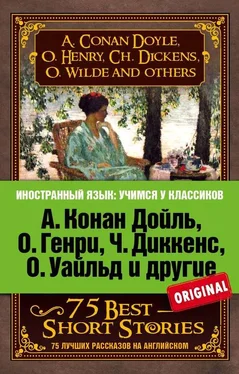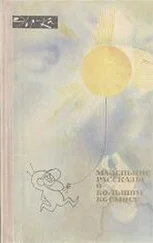The fleeting light soon expired, and twilight was succeeded by the early night.
The inn yard gradually became quiet; and the dead sexton lay alone, in the dark, on his back, locked up in the old coach-house, the key of which was safe in the pocket of Tom Scales, the trusty old hostler of the George.
It was about eight o’clock, and the hostler, standing alone on the road in the front of the open door of the George and Dragon, had just smoked his pipe out. A bright moon hung in the frosty sky. The fells rose from the opposite edge of the lake like phantom mountains. The air was stirless. Through the boughs and sprays of the leafless elms no sigh or motion, however hushed, was audible. Not a ripple glimmered on the lake, which at one point only reflected the brilliant moon from its dark blue expanse like burnished steel. The road that runs by the inn door, along the margin of the lake, shone dazzlingly white.
White as ghosts, among the dark holly and juniper, stood the tall piers of the Vicar’s gate, and their great stone balls, like heads, overlooking the same road, a few hundred yards up the lake, to the left. The early little town of Golden Friars was quiet by this time. Except for the townsfolk who were now collected in the kitchen of the inn itself, no inhabitant was now outside his own threshold.
Tom Scales was thinking of turning in. He was beginning to fill a little queer. He was thinking of the sexton, and could not get the fixed features of the dead man out of his head, when he heard the sharp though distant ring of a horse’s hoof upon the frozen road. Tom’s instinct apprized him of the approach of a guest to the George and Dragon. His experienced ear told him that the horseman was approaching by the Dardale road, which, after crossing that wide and dismal moss, passes the southern fells by Dunner Cleugh and finally enters the town of Golden Friars by joining the Mardykes road, at the edge of the lake, close to the gate of the Vicar’s house.
A clump of tall trees stood at this point; but the moon shone full upon the road and cast their shadow backward.
The hoofs were plainly coming at a gallop, with a hollow rattle. The horseman was a long time in appearing. Tom wondered how he had heard the sound – so sharply frosty as the air was – so very far away.
He was right in his guess. The visitor was coming over the mountainous road from Dardale Moss; and he now saw a horseman, who must have turned the corner of the Vicar’s house at the moment when his eye was wearied; for when he saw him for the first time he was advancing, in the hazy moonlight, like the shadow of a cavalier, at a gallop, upon the level strip of road that skirts the margin of the mere, between the George and the Vicar’s piers.
The hostler had not long to wonder why the rider pushed his beast at so furious a pace, and how he came to have heard him, as he now calculated, at least three miles away. A very few moments sufficed to bring horse and rider to the inn door.
It was a powerful black horse, something like the great Irish hunter that figured a hundred years ago, and would carry sixteen stone with ease across country. It would have made a grand charger. Not a hair turned. It snorted, it pawed, it arched its neck; then threw back its ears and down its head, and looked ready to lash, and then to rear; and seemed impatient to be off again, and incapable of standing quiet for a moment.
The rider got down as light as shadow falls.
But he was a tall, sinewy figure. He wore a cape or short mantle, a cocked hat, and a pair of jack-boots, such as held their ground in some primitive corners of England almost to the close of the last century.
‘Take him, lad,’ said he to old Scales. ‘You need not walk or wisp him – he never sweats or tires. Give him his oats, and let him take his own time to eat them. House!’ cried the stranger – in the old-fashioned form of summons which still lingered, at that time, in out-of-the-way places – in a deep and piercing voice.
As Tom Scales led the horse away to the stables it turned its head towards its master with a short, shill neigh.
‘About your business, old gentleman – we must not go too fast,’ the stranger cried back again to his horse, with a laugh as harsh and piercing; and he strode into the house.
The hostler led this horse into the inn yard. In passing, it sidled up to the coach-house gate, within which lay the dead sexton – snorted, pawed and lowered its head suddenly, with ear close to the plank, as if listening for a sound from within; then uttered again the same short, piercing neigh.
The hostler was chilled at this mysterious coquetry with the dead. He liked the brute less and less every minute.
In the meantime, its master had proceeded.
‘I’ll go to the inn kitchen,’ he said, in his startling bass, to the drawer who met him in the passage.
And on he went, as if he had known the place all his days: not seeming to hurry himself – stepping leisurely, the servant thought – but gliding on at such a rate, nevertheless, that he had passed his guide and was in the kitchen of the George before the drawer had got much more than half-way to it.
A roaring fire of dry wood, peat and coal lighted up this snug but spacious apartment – flashing on pots and pans, and dressers high-piled with pewter plates and dishes; and making the uncertain shadows of the long ‘hanks’ of onions and many a flitch and ham, depending from the ceiling, dance on its glowing surface.
The doctor and the attorney, even Sir Geoffrey Mardykes, did not disdain on this occasion to take chairs and smoke their pipes by the kitchen fire, where they were in the thick of the gossip and discussion excited by the terrible event.
The tall stranger entered uninvited.
He looked like a gaunt, athletic Spaniard of forty, burned half black in the sun, with a bony, flattened nose. A pair of fierce black eyes were just visible under the edge of his hat; and his mouth seemed divided, beneath the moustache, by the deep scar of a hare-lip.
Sir Geoffrey Mardykes and the host of the George, aided by the doctor and the attorney, were discussing and arranging, for the third or fourth time, their theories about the death and the probable plans of Toby Crooke, when the stranger entered.
The new-comer lifted his hat, with a sort of smile, for a moment from his black head.
‘What do you call this place, gentlemen?’ asked the stranger.
‘The town of Golden Friars, sir,’ answered the doctor politely.
‘The George and Dragon, sir: Anthony Turnbull, at your service,’ answered mine host, with a solemn bow, at the same moment – so that the two voices went together, as if the doctor and the innkeeper were singing a catch.
‘The George and the Dragon,’ repeated the horseman, expanding his long hands over the fire which he had approached. ‘Saint George, King George, the Dragon, the Devil: it is a very grand idol, that outside your door, sir. You catch all sorts of worshippers – courtiers, fanatics, scamps: all’s fish, eh? Everybody welcome, provided he drinks like one. Suppose you brew a bowl or two of punch. I’ll stand it. How many are we? Here – count, and let us have enough. Gentlemen, I mean to spend the night here, and my horse is in the stable. What holiday, fun, or fair has got so many pleasant faces together? When I last called here – for, now I bethink me, I have seen the place before – you all looked sad. It was on a Sunday, that dismalest of holidays; and it would have been positively melancholy only that your sexton – that saint upon earth – Mr. Crooke, was here.’ He was looking round, over his shoulder, and added: ‘Ha! don’t I see him there?’
Frightened a good deal were some of the company. All gaped in the direction in which, with a nod, he turned his eyes.
Читать дальше
Конец ознакомительного отрывка
Купить книгу












